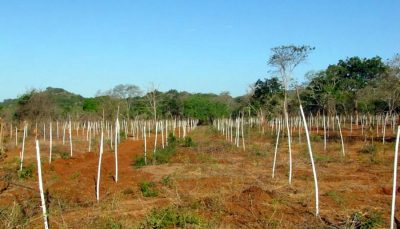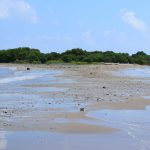Category:Cases - Archive, Legal

Case Number
SCFR 699/2012
United Dendro Energy (Pvt) Ltd (UDE), a subsidiary of Lanka Orix Leasing Company Ltd (LOLC) planned a project in an area contiguous with Ruhunu National Park. This area along with Katagamuwa and Kataragama Sanctuaries forms an important ecological buffer zone to these protected areas as they reduce the negative impacts of humans on these areas as well as the negative impacts of wildlife on developed areas along the western border. Scrub forests have been identified as one of the country’s major forest types by the Ministry of Environment and the Forest Department. The project caused extensive damage to the area as the site was being cleared by heavy machinery and earth moving equipment.
Gliricidia sepium is native plant species of the seasonally dry Pacific Coast of Central America. In many parts of its introduced range G. sepium has the ability to flower at any time of the year if there is no pronounced dry season. On maturity as tension builds up in the pod valves, they dehisce explosively and seeds are ejected to distances of up to 25m. This phenomenon facilitates the rapid establishment of this species, especially in disturbed sites. Wind plays a part in the direction of seed dispersal and secondary dispersal by rain is also possible. When this species starts to grow in the wild, it competes with native vegetation eventually causing many irreversible ecological issues for the natural habitat.
In Sri Lanka, nitrogen-fixing Gliricidia can be used as fuel wood as it is fast growing and therefore available in large volume. Fuel wood plantations for Dendro power generation can be established as a multi-crop species in home gardens (especially along fence lines), under growth in coconut plantations, shade for tea plantations and as a multi-crop for reforestation. Dendro power generation is best fit for off-grid villages in Sri Lanka to generate electricity from Village Dendro Schemes without interfering with food crop production or destroying natural forests. However, UDE has established their power plant in Biyagama and it appears that this is a large scale commercial power production project for making money under the name of the sustainable energy production. Destroying forest habitat is entirely against sustainable Dendro power production principles, as fuel wood for Dendro power production should be supplied without any interference and destruction to natural processes and habitats.
This project has commenced without resorting to the due process under the National Environment Act (NEA) Part IV C. The NEA states that no prescribed project should commence without such approval. This project has already cleared a large extent for forest land and violated some regulations of the Act (number 772/22) which have inter-alia stated that any project that involves the clearing of more than 1 hectare of forest land and plantation of any type exceeding 5 hectares needs to be approved through the process which is fully stated under Section 23 BB.
The Forest Ordinance (FO) clearly stipulates that no person shall cut or clear any forest for the purpose of cultivation and/or pasture land without a permit. Even so, the Forest Department cannot give permission for the clearing of such large areas of forest land, as it goes against their National Mandate. Part of the land being cleared falls within a mile from the borders of RNP, which has been declared as a Protected Area under the provisions of the Flora and Fauna Protection Ordinance (FFPO). Therefore this project requires the approval of the Department of Wildlife Conservation (DWC) for any development project falling within a 1 mile area of RNP. Furthermore, the said section makes it mandatory for the party seeking such approval to conduct an Environmental Impact Assessment and submit the report to the DWC as a project approving agency.
During the case it was proved that UDE and LOLC had not obtained the relevant approvals for any such project before it began and entered a tripartite agreement with Forest Department and Magampura Cattle Farmers unlawfully.
The Court declared that the tripartite agreement between the Forest Department, United Dendro Pvt Ltd and Magampura Cattle Farmers was unlawful and therefore null and void. The parties to the case reached an agreement for a conditional settlement with UDE dissolving as a company and LOLC ceasing all activities of the project and Forest Department undertaking to not alienate any part of the Amerawewa grazing land unlawfully.
The settlement was filed by consent motion in Supreme Court in August 2015.





